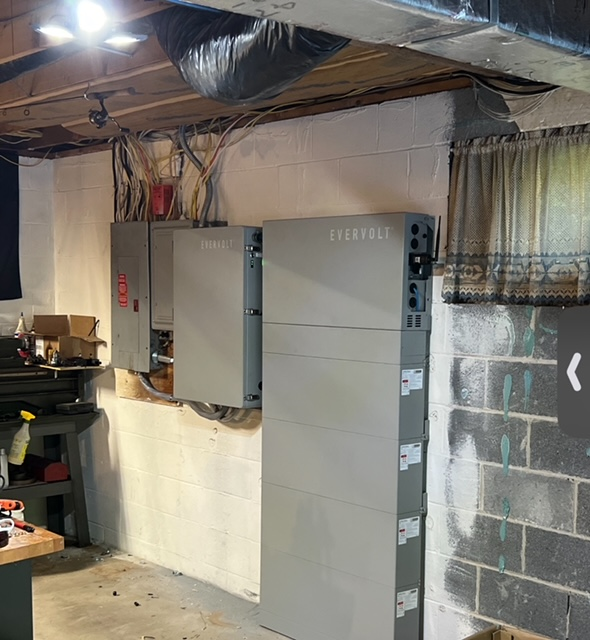Home battery storage systems offer so many benefits, from lower energy bills to greater energy independence and security. They are also a new and unfamiliar technology to many homebuyers. For those considering buying or selling a home with a battery storage system installed, understanding its implications is important. Here's a look at what a home battery is, how it works and what you need to consider if you're buying or selling a home with battery storage.
What is home battery storage?
A home battery storage system stores electricity for you to use later. This electricity can either be from the electric grid or from rooftop solar panels (if you have them), or both. You can install one or several batteries in your home and choose which of your appliances and devices receive power from your battery when it is turned on. For example, your refrigerator, Wi-Fi or air conditioning.
Most home batteries come with a monitoring system and an inverter. The monitoring system is usually an app or online platform you can use to track real-time data such as your energy usage, battery charge and performance. An inverter converts electricity stored in your battery into power you can use in your home. It also connects your battery to solar panels if you already have them or wish to add them in the future.
What are the benefits of home battery storage?
Home batteries offer a reliable source of backup power that you can use whenever you need, ensuring you can always keep your most important appliances running during a power outage. If you're on a time-of-use (TOU) rate plan, where you pay more for electricity during peak hours, a battery can save you money as you can charge it when rates are low and then use that stored power when prices rise.
The benefits of a battery go even further when you add solar panels, as they enable you to generate and store free, surplus solar power from your panels. For example, if your panels generate lots of power in the middle of the day when there's no one home to use it, a battery can store this free electricity for you to use in the evening, when the sun goes down and grid electric rates rise.
Panasonic EVERVOLT battery with SmartBox, photo courtesy of Panasonic Eco Systems and Public Service Solar
Considerations for home buyers
If you're buying a home with a battery installed, you probably have lots of questions for the existing homeowner, such as how it works, the benefits it can bring and whether it requires any maintenance.
Start by finding out how old the battery is, what condition it's in and if any warranties are remaining. Batteries tend to have a lifespan of about 10 to 15 years and most manufacturers include a warranty of at least 10 years. The Panasonic EVERVOLT® has a warranty of 13 years. Batteries don't need much maintenance, but it's worth asking the existing homeowner if and when they perform system checks.
Ask the seller to show you how the monitoring system works and how to use it to understand the battery's performance. Be sure to check whether it's an AC- or DC-coupled battery, as this determines how straightforward it will be to add solar panels in the future, if you wish to. DC-coupled systems tend to be easier to integrate with new solar panels than AC-coupled systems.
Batteries are about the same size as a fridge and are typically installed indoors, such as in a garage or utility room, which means they don't alter the home's appearance or existing infrastructure. They also operate quietly and without emissions, meaning that while a battery may not directly increase the value of a home, it can be an attractive benefit for any potential buyer.
Implications for home sellers
Batteries are still quite a new technology for homeowners, which means many buyers won't be familiar with how they work and the advantages they can bring. Some may even have concerns, particularly around their maintenance and upkeep.
Be clear in your listing and with any potential buyers about what the system does and the benefits you've enjoyed as a result. Explain any measures you take to maintain the battery, show them how the monitoring system operates and how to check its performance. Emphasize high value features, such as the ability to automate when it turns on, the ease of integrating it with solar panels and any energy savings or backup power advantages it has provided.
Address any potential concerns upfront, offering clear information about how the system works, ease of maintenance and potential cost savings. And definitely share any documentation you have from the installer and manufacturer, including any warranties and important contact phone numbers.
If you're selling or buying a property, a home battery offers a huge unique selling point. For home sellers, ensure you make it easy for potential buyers to quickly understand the benefits a battery brings and the low maintenance it requires. And if you're buying a property with a battery, be sure to ask lots of questions so that you can get the most value from your new battery.
If your new home didn’t come with a battery storage system but you’d like to add one, a Panasonic-authorized installer can help you find the option that’s best for you.




